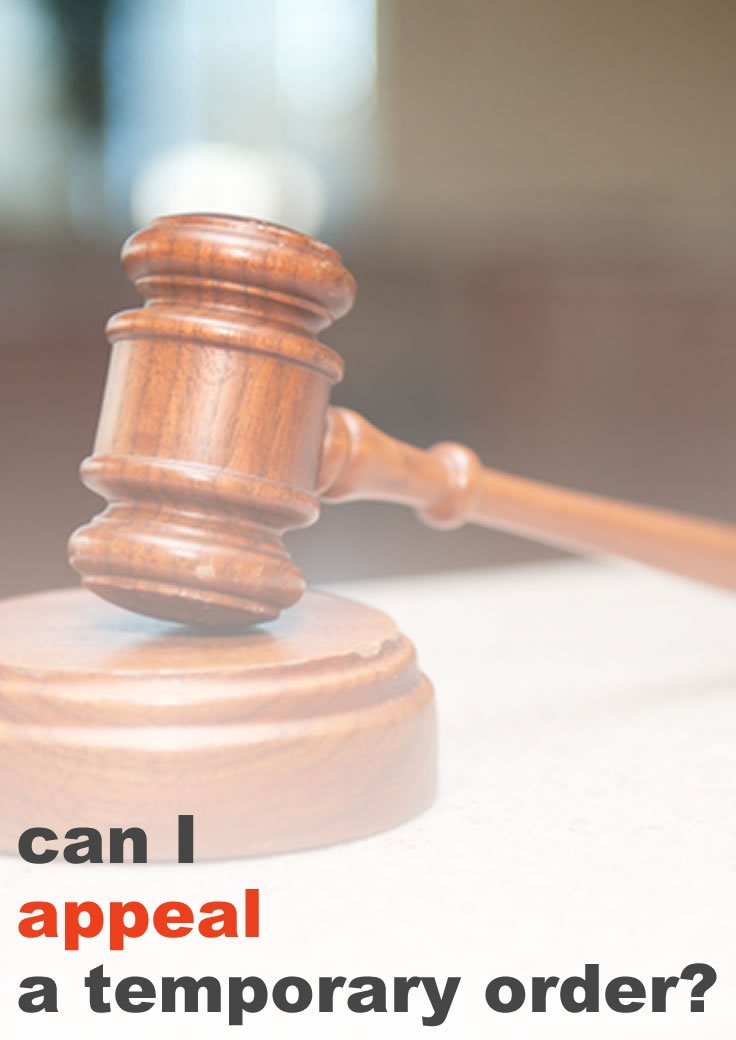Can I Appeal the Temporary Order
 I have written about the importance of temporary hearings in the past on this blog. Getting the case started out right from the beginning is important for your case. However, some times no matter how well you and your lawyer prepare, things don't go so well during at the temporary hearing. Occasionally, it is obvious that bad things are going to happen at a Temporary Hearing. Other times the Court's ruling can come as a surprise. Either way, it is hard to deal with the consequences of some court orders. In Family Court, these orders often deal with subjects that are near and dear to your heart: your children and your money.You may disagree on how the Court ruled on custody for your children or you don't know how you can afford the child support and alimony that the judge ordered you to pay. Perhaps, you don't know how you will live on the support amount you were awarded.So, can you appeal the temporary order?In a word, no. In 2012, the South Carolina Supreme Court answered this question for us in the case of Terry v. Terry (400 S.C. 453). The Court held that these temporary orders in Family Court are just that - temporary. These orders are without prejudice to the rights of the parties and do not decide any issue with finality nor affect a substantial right. Additionally, the family court has the authority to correct any error from the temporary order at the final hearing, Terry v. Terry, 400 S.C. 453, (456-457).
I have written about the importance of temporary hearings in the past on this blog. Getting the case started out right from the beginning is important for your case. However, some times no matter how well you and your lawyer prepare, things don't go so well during at the temporary hearing. Occasionally, it is obvious that bad things are going to happen at a Temporary Hearing. Other times the Court's ruling can come as a surprise. Either way, it is hard to deal with the consequences of some court orders. In Family Court, these orders often deal with subjects that are near and dear to your heart: your children and your money.You may disagree on how the Court ruled on custody for your children or you don't know how you can afford the child support and alimony that the judge ordered you to pay. Perhaps, you don't know how you will live on the support amount you were awarded.So, can you appeal the temporary order?In a word, no. In 2012, the South Carolina Supreme Court answered this question for us in the case of Terry v. Terry (400 S.C. 453). The Court held that these temporary orders in Family Court are just that - temporary. These orders are without prejudice to the rights of the parties and do not decide any issue with finality nor affect a substantial right. Additionally, the family court has the authority to correct any error from the temporary order at the final hearing, Terry v. Terry, 400 S.C. 453, (456-457).
What recourse does one have when a temporary order doesn't go their way?
This ruling seems to indicate that one's redress comes at a final hearing. But, there are some things that can be done in the mean time. It is possible to file a motion requesting the Court to reconsider its ruling. Unless there is clear law on point; however, it will be difficult convincing the Court to modify its order. It is also entirely possible that when the Court reconsiders its ruling that the new ruling could be worse than the original ruling.The next option would be to put the litigation on the fast track. Move as quickly as is prudent and reasonable through the discovery process and any investigation that must be done and get your final hearing scheduled as quickly as possible.

